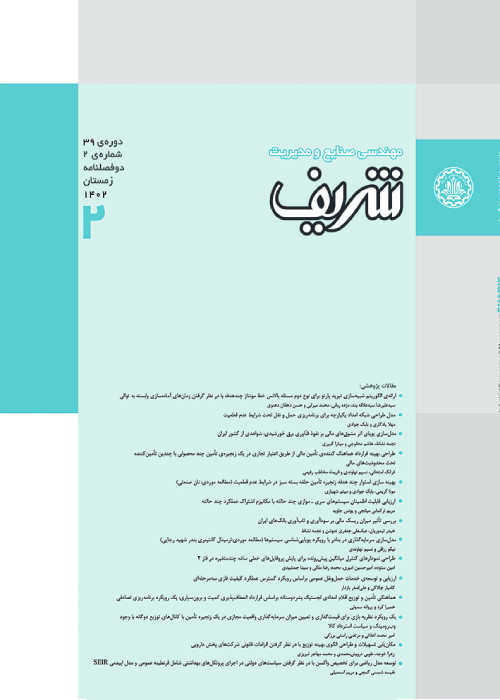DESIGNING A SECOND GENERATION OF BIOFUEL SUPPLY CHAIN NETWORK BASED ON CARBON EMISSION REGULATIONS UNDER UNCERTAINTY
Global warming and the detrimental impacts of fossil fuels on the environment and human life have led to greater concern and focus on producing sustainable energy resources for future. One of the renewable and sustainable energy resources is biofuel. Today, most of developed countries are focused on producing biofuels to improve economic and environmental opportunities. Because of carbon dioxide and other greenhouse gases emissions during supply chain activities, a mathematical model has been presented for designing a second generation of sustainable multi-stage biofuel supply chain network, which contains agricultural zones, bio-refineries, and markets with the objective of maximizing the profit. Supply chain costs like growing, harvesting, collecting, and agricultural residual storage, transportation of agricultural residual from farms to bio-refineries, producing biofuel in bio-refineries, and transportation cost from bio-refineries to markets are also considered. Since a considerable amount of carbon dioxide is emitted during transporting agricultural residual from farms to bio-refineries and transporting biofuel from bio-refineries to markets, four different carbon emission regulations are considered in order to examine the environmental impacts including carbon cap, carbon tax, carbon cap-and-trade, and carbon offset. Based on the carbon-cap mechanism, the maximum amount of carbon emissions is limited. Under the carbon tax mechanism, for each unit of carbon emission, a tax must be given to the regulations. Regarding a carbon cap-and-trade policy, a carbon cap is imposed on supply chain operations and companies can trade their carbon allowances in the market. Considering a carbon offset mechanism, a company can purchase additional carbon allowances. According to uncertainties in real-world problems, the uncertain nature of parameters like selling revenue of biofuel, costs of growing, harvesting, collecting agricultural residual, transportation of agricultural residual and biofuel, biofuel production, carbon tax rate, and amount of carbon emissions are reflected. A chance-constrained fuzzy programming approach is used to deal with uncertain parameters. It is apparent through numerical results that the proposed model is so efficient and it can be used in the future to produce and develop second-generation biofuel a supply chain from agricultural residual by considering the carbon emission regulations.
- حق عضویت دریافتی صرف حمایت از نشریات عضو و نگهداری، تکمیل و توسعه مگیران میشود.
- پرداخت حق اشتراک و دانلود مقالات اجازه بازنشر آن در سایر رسانههای چاپی و دیجیتال را به کاربر نمیدهد.


